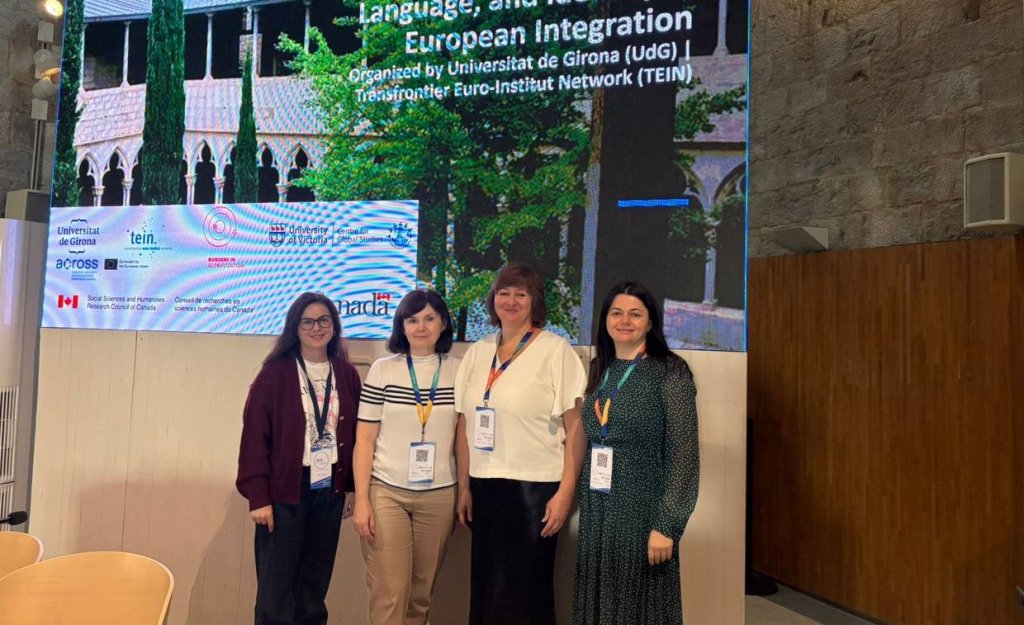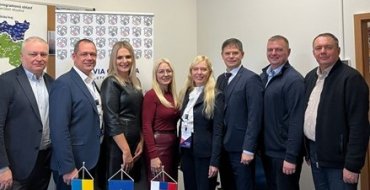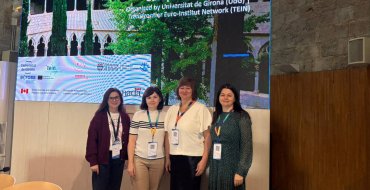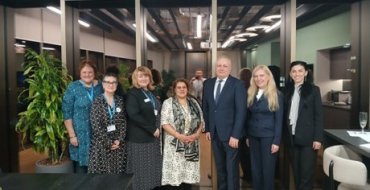Scientists of the Uzhhorod National University took part in the international conference «Beyond borders: culture, language and identity in European integration»
On October 21–22, 2025, the University of Girona (Spain) hosted the annual conference of the network of cross-border European institutions – «Beyond borders: culture, language and identity in European integration», organized by the University of Girona (together with the network of cross-border European institutions within the framework of the project «Borders in conditions of globalization – XXI century»).
This annual conference is one of the most authoritative European platforms for discussing issues of European territorial cooperation, legal and administrative barriers to cross-border interaction, linguistic and cultural communication, identity and education in the processes of European integration. In 2025, the conference brought together more than 80 researchers, experts and authorities from EU Member States and North America.
Uzhhorod National University was well represented by scientists who took part in several thematic sections devoted to the discussion of cross-border cooperation, legal and administrative barriers of cross-border interaction, linguistic and cultural communication, identity and education in the processes of European integration.
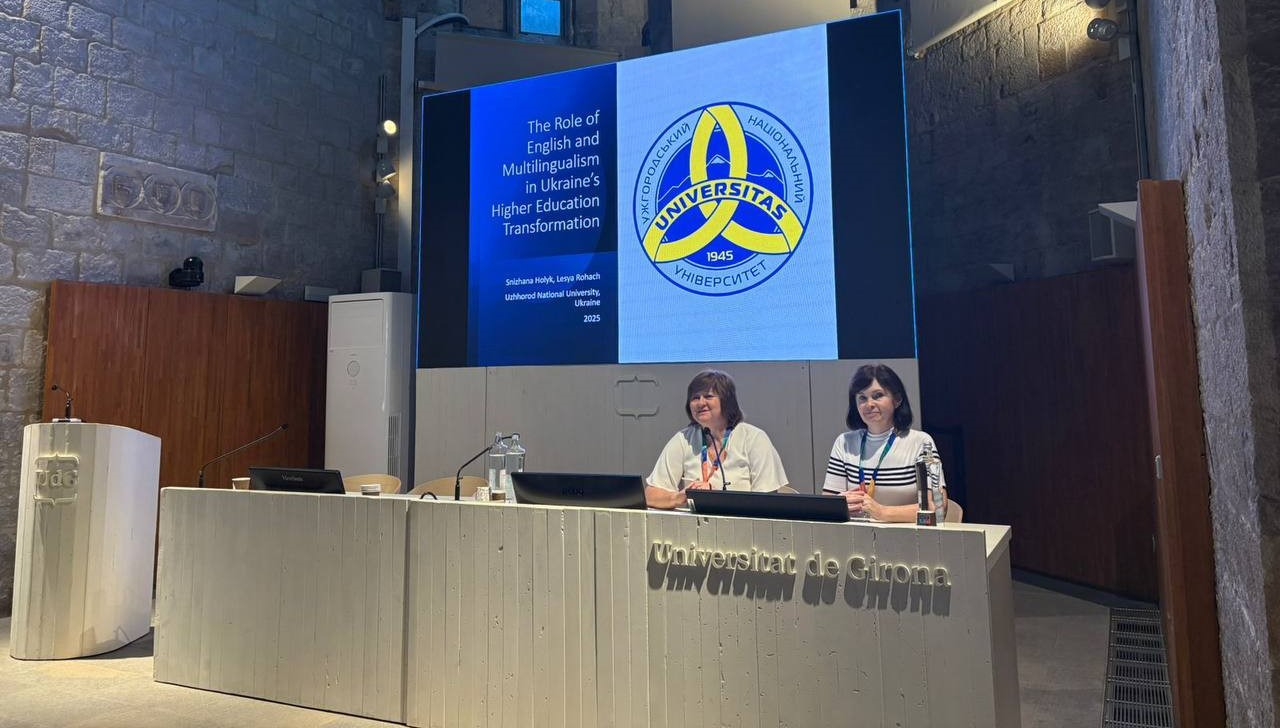
Snizhana Holyk, head of the Department of English Philology, acting Dean of the Faculty of Foreign Philology, and Lesia Rohach, Associate Professor of the Department of English Philology, gave a speech «English as a means of communication and cultural exchange: educational paths to multilingualism and cross-border cooperation», in which they analyzed the role of the English language as a universal tool for intercultural dialogue and the development of academic mobility. Scientists highlighted how English language learning programs in higher education institutions can become the basis for building interregional educational partnerships and joint scientific initiatives. Examples were given of effective multilingual education practices in the context of European cooperation. The author paid special attention to the integration of language education into the strategy of forming common European values.
Yuliia Fetko, director of the Research Institute of Fundamental and Applied Research of European Territorial Cooperation, associate professor of the Department of International Law, presented a report prepared in co-authorship with Yaroslav Lazur, dean of the Faculty of Law «The role of interlingual communication in the activities of local authorities in the field of cross-border cooperation», in which they analyzed legal, administrative and practical aspects of the use of languages in the activities of municipalities of border regions. Using the example of cross-border cooperation on the external border of the European Union – between Ukraine, Slovakia, Hungary, Romania and Poland they showed that multilingualism is not only a tool of intercultural dialogue, but also a factor in the development of partnership relations, the implementation of joint projects and increasing the level of trust between communities. The report analyzes the provisions of a number of legal acts of Ukraine and the European Union. Particular attention is paid to the European Charter of Local Self-Government, which defines the principles of autonomy and responsibility of local authorities. The authors emphasized that the development of language competences of officials and the harmonization of national legislation with European norms are key factors in strengthening the institutional capacity of local self-government bodies and the effective integration of Ukraine into the European cross-border space.
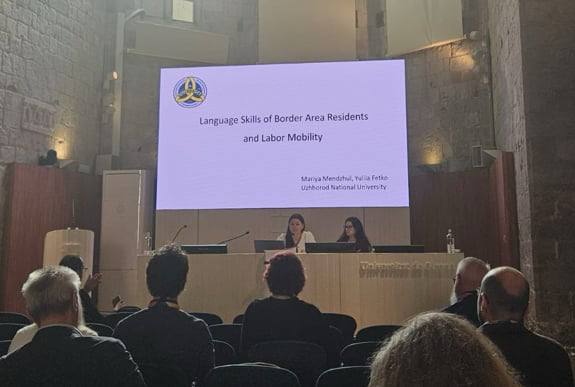
Maria Mendzhul, Deputy Dean for International Relations of the Faculty of Law, Professor of the Department of Civil Law and Procedure and Yuliia Fetko, Director of the Research Institute of Fundamental and Applied Research of European Territorial Cooperation, Associate Professor of the Department of International Law presented the report «Language skills of residents of border areas and cross-border labor mobility», in which they combined sociolinguistic and economic approaches to the analysis of the role of language in the processes of cross-border labor mobility. Researchers have shown that the level of foreign language proficiency directly affects the employment opportunities of residents of border regions, their social integration and professional development. The speech presents the results of a comparative analysis of language practices in the border regions of Ukraine, Poland, Slovakia, Hungary and Romania. Particular attention is paid to the role of universities in increasing the language competence of the population and forming the «language capital» of the region. «It was important for us to present the Ukrainian experience in the European context. Participation in the conference made it possible to demonstrate that Ukraine is an active participant in the scientific discussion about the legal, administrative and practical aspects of the use of languages in the activities of municipalities of border regions, as well as about culture, language and identity in the border space. Our research became the basis for new international partnerships», noted Snizhana Holyk.

The speeches of representatives of the Uzhhorod National University aroused considerable interest among the international audience, confirming the high scientific level of Ukrainian research. Participation in the conference contributed to expanding academic ties with leading universities in Europe, strengthening the university's reputation as an active participant in international scientific networks, and popularizing the Ukrainian scientific school in the European space. Scientists plan to continue cooperation with partners of the network of cross-border European institutions, in particular in the direction of joint research and projects devoted to legal, administrative and practical aspects of the use of languages in the activities of municipalities of border regions, as well as issues of culture, language, identity, language education and the development of intercultural competence in the conditions of modern Europe in order to further strengthen Ukraine's position on the path of European integration.

